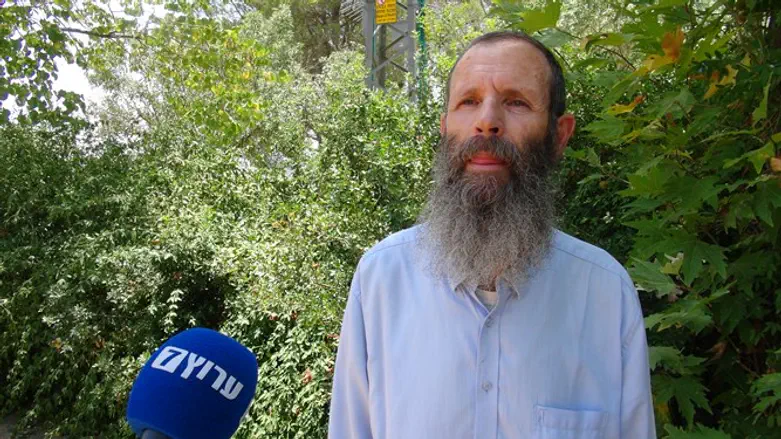
Rabbi Yigal Levinstein, the head of the 'Bnei David' pre-military academy, addressed the controversy over the bill to ban conversion therapy for homosexual individuals in Israel.
"The word 'conversion' is used to obscure the debate surrounding LGBT issues," said Rabbi Levinstein. "One of the methods of progressives is to take an argument and make it one-dimensional, to use all-encompassing terminology and cover everything with that, both good and bad."
"This is how the media influences public opinion," he added. "What do they do? They take a term, such as 'conversion therapy.' What is in this term? It's a scary word because its background is that of violent treatments, electric shocks, and physical injuries. Terrible things which were done in the past."
"Now they say, we want to stop it. Who wouldn't oppose something which has such a terrible history? So they use that word to describe what is actually something else entirely, very important help, decent, gentle, and humane psychological treatment," he said.
"I would generally call it professional help for people who have certain tendencies," he noted. "There is positive help and negative help. The negative kind is violent. It causes harm to a person, including his dignity and his body. That is how it was in the past and we are against that. But there are also wonderful, gentle, sensitive therapies that help a man return to being a man who can live a normal life and live with a woman. These treatments are wonderful."
"This bitter term is a code-word for a monster that wants to put everyone under one roof," he said. "Once you use a word whose connotation is negative, then even if you bring something helpful it will go under that heading."
"The psychological treatments are as good as any psychological treatments are. Good therapies should be supported while bad therapies should be opposed. Let's free ourselves from this bitter word which everyone has been subject to. Once it has this negative connotation we will not be able to explain it under that framework.
"They use this word deliberately," Rabbi Levinstein explained. "To obscure the debate. Is it possible to help boys and girls who want to be straight again? That is what the argument is about. They say no, while we say it is possible. They say that this therapy must be forbidden on principle, because the moment you say you can help someone with those tendencies, you declare them non-normative and they want it to be normative. It is not normative and it is not moral."
